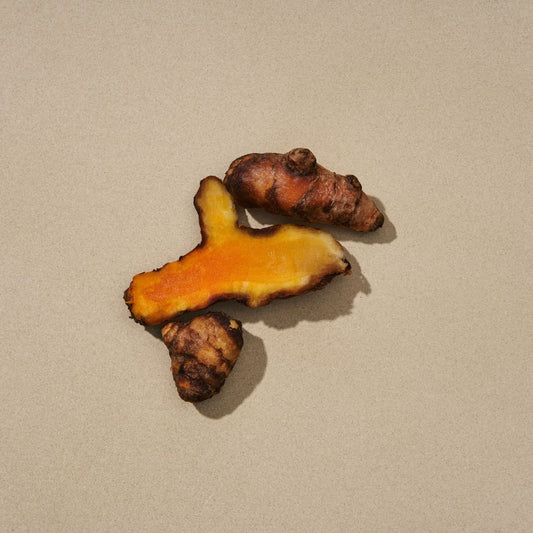Maybe you heard Kourtney Kardashian raving about her Ayurvedic cleanse, or perhaps you’ve stumbled across a story online that talks about the link between what you eat and how you feel. Is it just another fad or buzzword? No. The Ayurveda way of life has been around for thousands of years and there’s plenty of evidence to back things up.
The idea behind Ayurveda is that, in order to be truly healthy, we need to find balance within our mind, body and gut. To do this, a diet of healthy and wholesome foods is advised, as well as being in tune with your dosha, or Ayurvedic body type.
So, this World Digestive Health Day (29th May, for those asking!,) we’re going to look at how you can support your overall health and wellbeing - with an Ayurvedic diet designed for your dosha.
Introducing the Ayurvedic way of life
First things first, Ayurveda says we’re made up of three doshas - Vata, Pitta and Kapha. All three can be found in our body, but one is usually more dominant (kind of like your Sun sign in astrology). This determines the way we feel and act, as well as what foods and activities are best for us.
For optimal health, all doshas need to be balanced. So let’s say your Vata levels are too high, you should focus on Vata-reducing foods and exercise. By knowing your unique dosha makeup, you can also avoid certain foods and activities that may cause an imbalance. Ready to find out your dosha?
Take our quick quiz or keep scrolling for more info.
Vata dosha
If you’re creative, expressive and energetic, then you could be Vata. Thanks to the light and airy nature of this dosha, Vatas tend to be light sleepers and suffer from cold hands and feet. When you’re out of balance, you’ll likely feel restless and weak.
Ayurveda recommends a diet of cooked vegetables and sweet fruits to keep you grounded, and ensure energy is maintained. Think cooked apples, mangoes, beets, carrots, and chicken and fish in small amounts. Dairy is allowed, and cardamom, cumin and ginger, which have huge benefits for the digestive system, are also recommended.
Ayurveda says Vatas should try to avoid dried fruits and frozen or raw vegetables because of their cold nature. Too much red meat can also be too rich, which is why Ayurvedic diets for Vatas centre around protein and shellfish.
Pitta dosha
Fiery Pitta types are warm, athletic and ambitious. But, you can also suffer from rashes, indigestion and heartburn. For this reason, a calming and non-acidic diet of unsalted butter, soft cheese, ghee and milk is recommended, alongside white meat and fish. Sweet and bitter vegetables like broccoli, squash, mushrooms, and sweet potatoes can also help to soothe the digestive tract.
Again, Ayurveda says a diet packed with super herbs and spices like cinnamon, mint, basil, turmeric and ginger can be good for the body, mind and gut. As well as this, turmeric and ginger (which can be added to warm water to create a tea) can restore internal balance, and give immunity and strength a boost. To combat excess Pitta levels, it’s advised that you steer clear of sour, acidic and spicy food, as they can all add fuel to the digestive fire and lead to poor digestion.
Kapha dosha
Calm, collected and thoughtful, Kaphas enjoy routine and like to nurture others. If your Kapha dosha is out of balance, you may feel tired and struggle with losing weight and weight gain. Dried fruits and legumes are great for Kaphas, as they keep you nourished and keep things moving inside. Raw vegetables and fruit also keep the digestive system on track.
Again, light and white meats as well as fish are great for combating excess Kapha levels, and herbs including turmeric, black pepper, cardamom and cinnamon are advised.
Dairy isn’t recommended for Kaphas, though, and neither are overly ‘wet’ foods like coconut, watermelon, cucumber and courgette because of their heavy and dense nature. Grains, which are light, dense and rough should also be avoided, as when it comes to balancing Kapha, these are the characteristics we look to reduce.
Ayurvedic diet tips
According to Ayurveda, the food you eat is just the start. In fact, there’s a whole lot of guidance on how to eat, when and why.
-
Try to establish a routine of eating at the same time every day. Ayurveda says breakfast should ideally be before 8am, lunch (which should be the largest meal) between 12.30pm and 2pm, and dinner before 7pm. This is to restore a little balance back into your life and help your gut to digest and process all the foods and nutrients.
-
Ayurvedic practitioners say cooking should be treated as an event, with as many mindful practices as possible. Take your time to prepare any foods in a slow manner, enjoy the process and, sooner rather than later, your salivary glands and digestive juices will be flowing! Mindful eating is also recommended, with small bites and time to chew. Lighting some candles and putting music on can enhance the experience and will do wonders for your body and mind.
- Eating the right amount is just as important. Overeating can put the stomach and digestive system under pressure, but undereating can also mean your body doesn’t have the right amount of energy and nutrients. Before leaving the table, you shouldn’t feel any discomfort and your mind and body should feel content.
We’ve got you
Of course, we know that finding inspiration in the kitchen can be easier said than done - especially when daily stresses and work commitments get in the way. Here are our favourite Ayurvedic recipes to help you out quickly when it comes to meal times.
Even better, we’ve created a Healthy Digestion Kit to keep your gut happy from the inside out. It contains our best-selling Rest and Digest capsules and our Copper Tongue Scraper. The daily capsules - which consist of a soothing blend of Ayurvedic medicinal herbs like Fennel, Ginger, Long Pepper and Triphala - give your gut a helping hand, detoxify it, promote healthy stomachs and aid digestive support. The tongue scraper will remove bacteria which has built up over night, get rid of dead cells and toxins, and prevent them from entering the digestive tract, while stimulating digestion.
So this World Digestive Health Day, and every day in between, why not give your gut the attention it deserves? We guarantee your body and mind will thank you too. If you are suffering with any stomach issues, we also recommend getting in touch with your doctor for some medical advice, a diagnosis or treatment.





